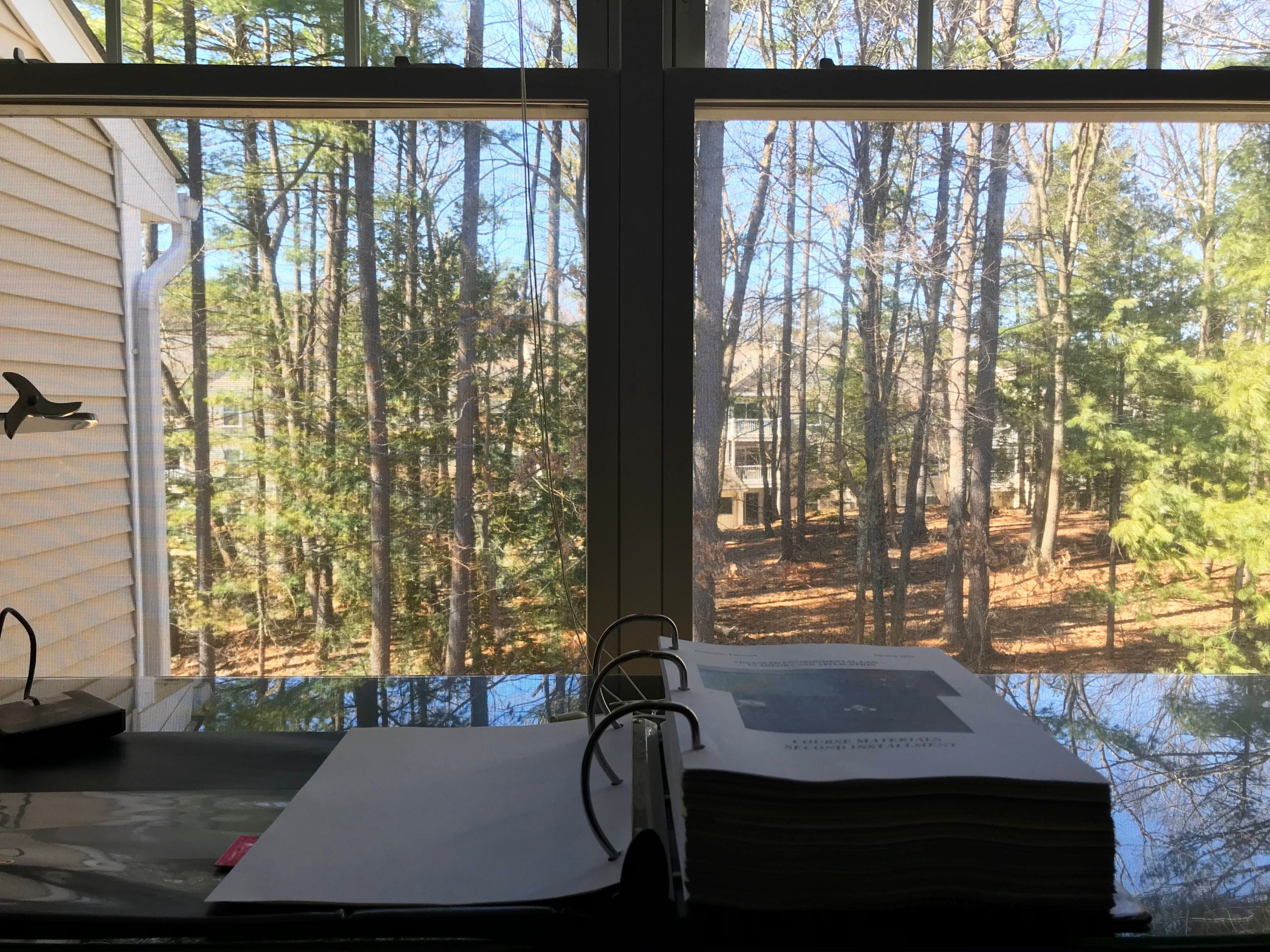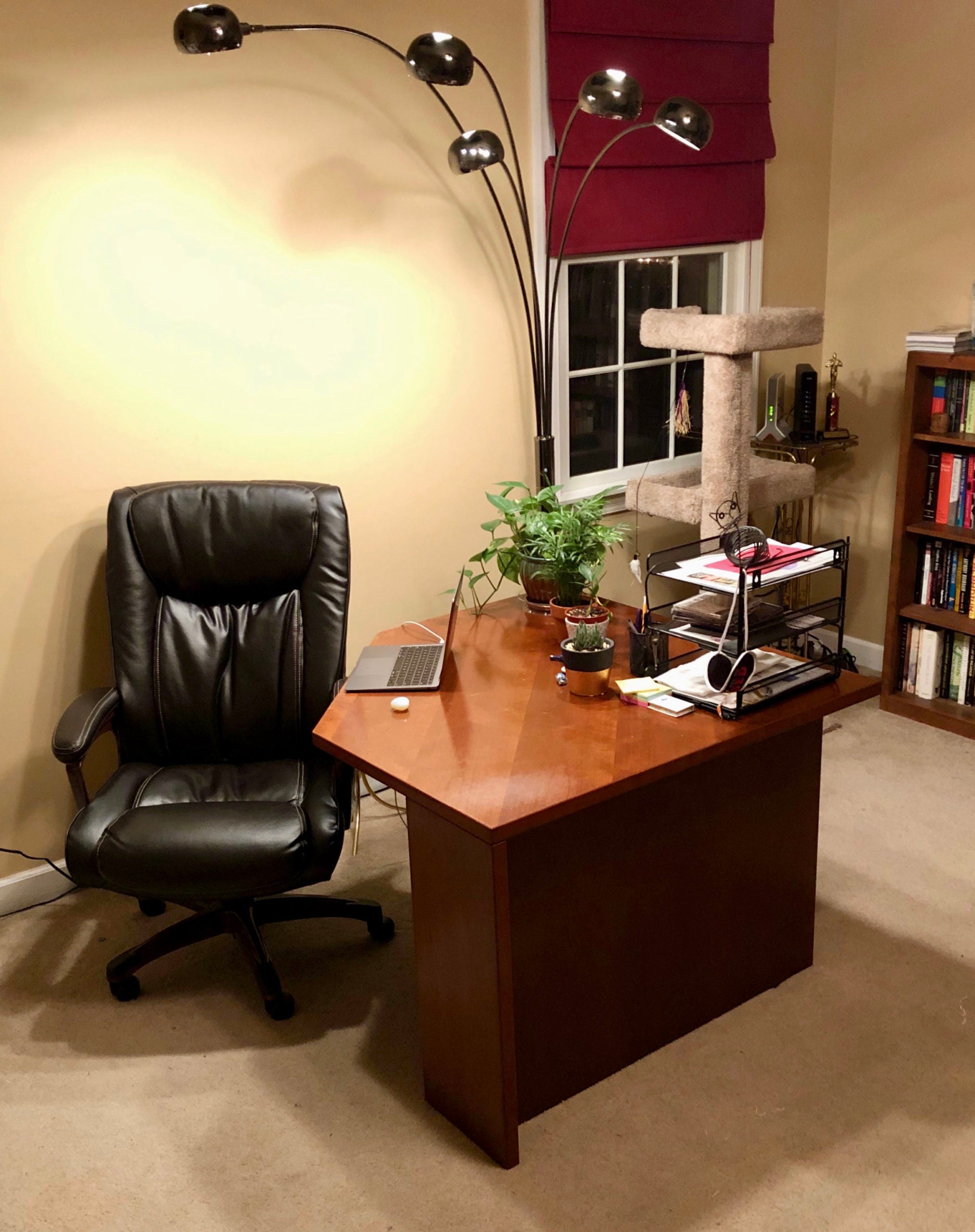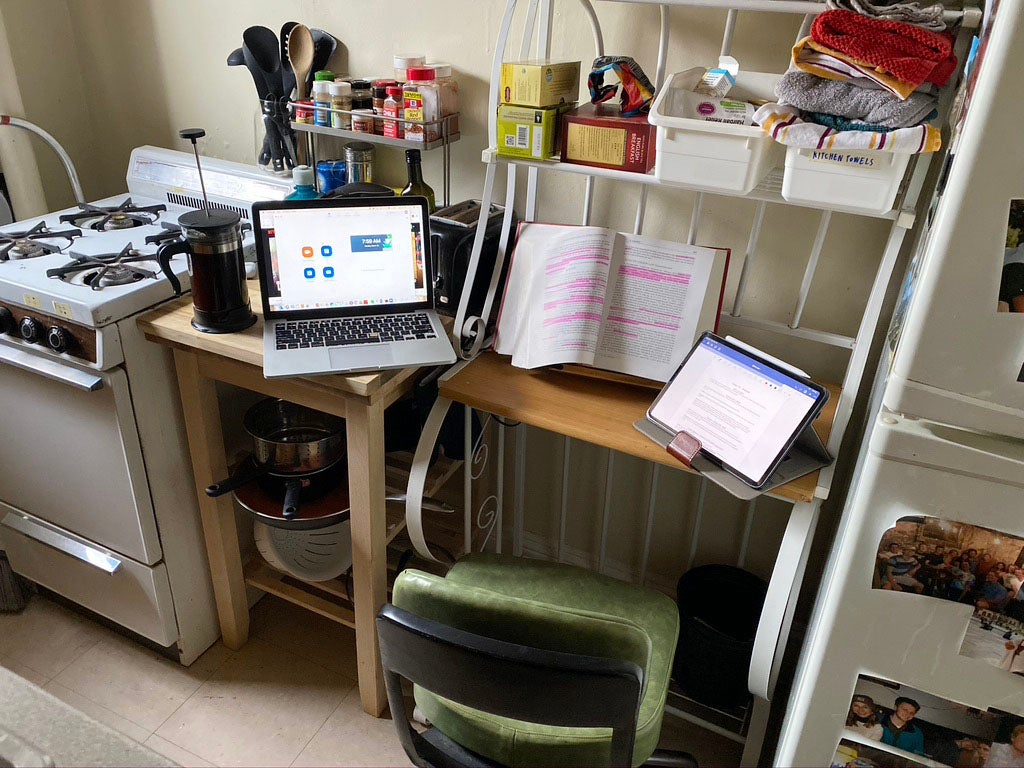On March 10, Harvard University announced that it would shift to remote teaching and learning, immediately following Spring Break, as part of its ongoing effort to limit the spread of COVID-19. In accordance with this decision, Harvard Law School’s 338 scheduled Spring courses—with 12,568 enrolled students—officially went online beginning Monday, March 23. Harvard Law Today spoke to three HLS J.D. students—Peter Daniels ’21, Noelle Graham ’21, Eric Wriston ’22—by email about leaving campus and their first week of classes via Zoom.
What happened when you received the message that classes were being moved online after Spring Break and you had to leave campus?
Peter Daniels ’21: My experience was much less unitary than this question would suggest—the email that classes were moving remote was only one message among several of escalating response. First travel was restricted, then large gatherings, then some classes would be remote for some time, then all classes would be remote for some time, then all classes would be remote for the remainder of the semester, then we were barred from some buildings on campus, then all of campus, and then commencement was cancelled. So it was less of a single shocking moment, and more a spiral into chaos. The most direct impact on me was that the Palestine Trek was cancelled (which I had already invested over $2000 in) and my team’s participation in the CPR International Mediation Moot Competition was cancelled. As captain of the team, I was required to do some damage control in terms of explaining the situation to a disappointed team and doing what I could in terms of cancelling flights and reservations.
Noelle Graham ’21: Receiving the message that classes were being moved online felt very surreal. I had just gotten back to North Hall after having drinks with friends when I got the email. After reading through it, I immediately called my family to update them and to begin forming a move-out plan.
Eric Wriston ’22: It took a long time for the seriousness of what was happening to settle in. At first, I talked with friends about continuing to meet up to take our classes together, and maybe even taking advantage of cheap flights to go and take our classes somewhere fun and exciting. But, as the reality of the situation slowly began to hit, I realized how hard this was going to be and began to worry. I worried especially about my friends who had to deal with things like moving out of their dorms on short notice, deciding whether it was safe to go home because of international travel restrictions, and dealing with affected loved ones. Some people in my section did an amazing job of organizing and pooling together resources to help those most affected deal with the consequences of the move.

Where are you working from?
Daniels: I don’t have access to a desk, so I do my work on a borrowed dresser, looking out a window onto a few trees between ours and the next apartment building. I’m lucky to have a private space where I can work, and it’s a testament to the generosity of my partner that I was able to move in at a moment’s notice. [Daniels is currently living in New Hampshire]
Graham: I am currently working from Mays Landing, New Jersey, a small town just outside Atlantic City. And I’m happy to have the company of my family’s three cats: Albus Dumbledore, Anderson Cooper, and Arya Stark.
Wriston: My partner and I share a small studio apartment in Allston, across the river from Cambridge, so I am working from the counter in our kitchen so that she is not constantly in the background of my classes on Zoom. While the size of the space certainly comes with downsides, it is convenient to be able to brew myself some coffee while sitting in class.

How was your class experience last week? Anything unexpected?
Daniels: In general, things have been going more smoothly than I anticipated. Of course, professors are taking a little while to get familiar and comfortable with Zoom. It’s been interesting and a bit surprising to see some of our more formal professors give presentations in more casual clothes and even from their beds. Class discussion is hampered a bit, but not nearly as much as I feared. My classes so far have included several guest speakers, who have been very generous with their time, and whose presentations have gone smoothly.
Graham: Transitioning to online classes has definitely required a bit of an adjustment. I did not attend all of my classes, but I’m happy with what I was able to get through this week. I think it is important for people to know that it is okay to take it easy right now. There are more important things in life than class.
Wriston: Online classes have so far been better than I thought they would be. The switch has come with new hurdles and technical difficulties and I miss conversations with my classmates before and after class. But, my professors have tried hard to try and maintain a classroom experience, and it is beginning to feel somewhat normal. My favorite thing on Zoom is being transferred to small “breakout rooms.” It feels like being teleported.
How are you keeping in touch with your HLS friends and classmates?
Daniels: Folks seem to be using the same apps and connections as were used before—a combination of GroupMe, Snapchat, Instagram, WhatsApp, Slack, Messenger, iMessage, text, and email. The only new development is the rise of casual Zoom hangouts and happy hours. My friend group has made a weekly appointment for us to video call together, drink a beverage of choice, and update each other on our latest quarantine hobbies and adventures.
Graham: It has been really nice seeing classmates on Zoom. Outside of class, I have been staying in touch with friends largely over text. I have a love-hate relationship with Instagram, but it has really helped to stay connected with friends and family during this time.
Wriston: So far, there has been a lot of checking in and occasional Zoom and FaceTime calls. Additionally, staying involved and doing work with the organizations I was already a part of at HLS has been a great way to stay in touch with people and establish some sense of normalcy.
